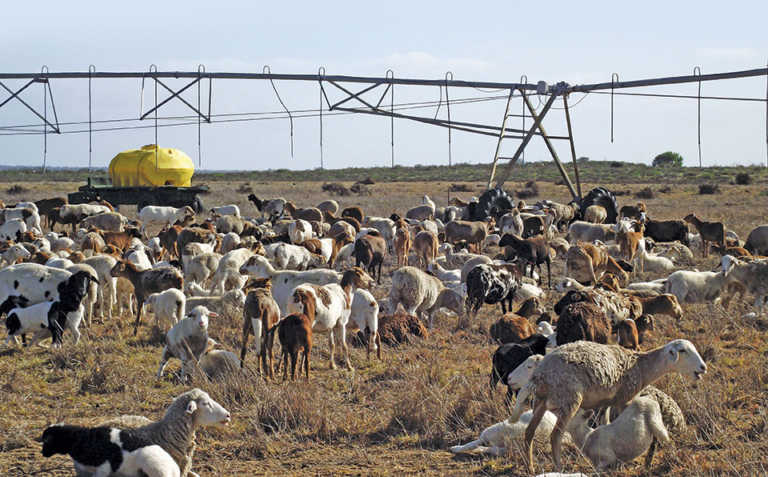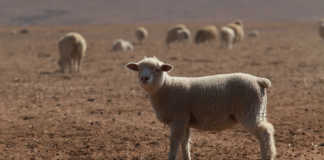
Photo: FW Archive
Why is it important that trust administration is up to date?
Trust assets are managed for the benefit of the trust beneficiaries; it is not the founder/trustee’s property to deal with as if it is part of his or her own estate. If the founder/trustee manages the trust assets as if they were his or her own, the court could come to the conclusion that the trust is the founder/trustee’s alter ego.
If this is the case, the trust assets might be deemed to be the assets of the founder/trustee in his or her personal capacity on date of death, which could amount to an increase in estate duty.
READ Family farming: fostering a good working relationship
In the case of divorce, if the court finds that the trust is the founder/trustee’s alter ego, it could issue a redistribution order that takes into account the wealth in the trust(s). Trustee meetings and resolutions, as well as financial statements and decisions will be considered in such a process, so keeping records of trustee meetings and resolutions is essential.
Why would new legislation influence trusts that were set up 20 years ago?
A trust deed is a ‘living’ document – you cannot create a trust, put it in the drawer and forget about it. Due to legislative changes, it is necessary to update or amend your trust deed accordingly. All trusts created before 2001 will probably not have a capital gains tax clause in the trust deed, as this tax came into effect only on 1 October 2001.
The latest legislative change with regard to trusts is the new Section 7C of the Income Tax Act, which came into effect on 1 March 2017.
This deals with loans to trusts. If the loan is interest-free (or bears interest at a lower rate than the current official rate of 8%), the difference between the interest charged (if any), and the interest that should have been charged (8%), will, with a few exemptions, be treated as a donation.
Sometimes the trustees make a disbursement to a beneficiary. In this case, they do not make a payment to the beneficiary, but reflect it as a ‘loan’ to the beneficiary in the trust’s books. To ensure that these ‘loans’ to a beneficiary do not fall within the ambit of Section 7C, the trust deed must make provision for these types of loans in the trust deed.
What do the current regulations on donations tax specify? What changes have been suggested to it?
An individual taxpayer can donate R100 000 per annum to anyone (individuals, trusts, etc) without incurring donations tax, which is currently 20%.
Legislation provides that spouses can donate to each other without incurring any donations tax liability. The proposal from the Davis Tax Committee is that inter-spousal donations tax exemptions be removed. It recommends that, instead, inter-spousal donations involving cash, motor vehicles and personal assets be exempted, but that a monetary limit be determined to curb excessive transfer of wealth.
How can you include cattle in a trust?
One of the challenges facing a livestock farmer is the income tax payable, on death, on the livestock owned. One option is to transfer livestock into a trust (without incurring any donations tax or creating a loan account owned by the trust), or consider a ‘sheep lease’.
Here, the farmer enters into a lease agreement with the trustees whereby the livestock is leased to the trust. The lease agreement provides that the trust must return the same number of livestock to the farmer at the end of the period of the lease. The rent payable is equal to the cost of labour and other costs incurred to maintain the livestock. All offspring of the leased livestock belong to the trust.
When the farmer requires money at any stage, he or she instructs the trustees to sell the livestock subject to the lease on his or her behalf.
READ South Africans urged to declare all offshore assets
The number of livestock to be returned to the farmer is reduced by the number of livestock the trustees sell. Although the value of the remaining livestock does not reduce in real terms, the sold livestock is replaced by the offspring over time, until eventually the entire herd consists of offspring that belong to the trust.
Through this process, the farmer successfully transfers ownership of the livestock to the trust over time without incurring donations tax or creating a loan account between the trust and the farmer.
In the past, livestock and farming implements owned by the farmer attracted capital gains tax upon the farmer’s death. The highest effective rate for capital gains tax is 18%.
As of 1 March 2017, livestock and farming implements attract income tax at a marginal tax rate of up to 45%. This could have a negative impact on a farmer’s liquidity as there will be an increase in income tax liability payable upon death.
The inclusion rate for capital gains tax in trusts is 80% with a tax rate of 45%. The effective capital gains tax rate in a trust is therefore 36%.
What is the best way to get a deed up to date?
It is best to have your trust deed audited by a specialist to determine if it allows for changes. If it does, the deed can be replaced in its entirety by a replacement trust deed – signed by all the relevant parties and lodged with the Master’s office – that complies with the latest legislative changes.
Alternatively, changes to the trust deed can be made by way of a resolution to that effect signed by all the relevant parties and lodged with the Master’s office.
Should a will be re-evaluated?
Due to changes in legislation, it is extremely important to review your will regularly. Through proper planning, taxes can be minimised and your wealth protected for future generations.
For example, if fixed assets are bequeathed to a trust by way of your will, there will not be any loan accounts that could attract negative tax implications for future generations (the new Section 7C of the Income Tax Act).
Are there benefits to appointing a trust company/attorney rather than a family member as executor of a trust?
Some people prefer to nominate a family member as executor of the estate. Their argument is that the surviving spouse/family member can then appoint an executor and negotiate a fee. The reality is that the surviving spouse or family member may be struggling emotionally at this time and could end up making impulsive decisions or struggle to negotiate the best fee.
Some companies prefer to negotiate the executor fee upfront with the client and make it an addendum to the will, allowing for the surviving family member to grieve with fewer concerns.
Email Elbe Thatcher at [email protected].











